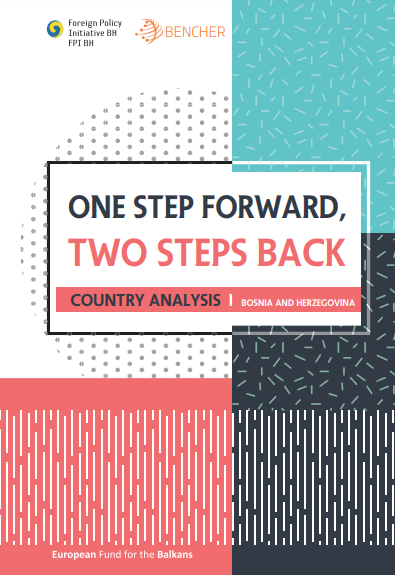Bosnia and Herzegovina: One step forward, two steps back
This document analyses the 2016 European Commission's Country Report on Serbia.
Going into the depths of the reports, it is easy to lose the initial optimism and realize that in reality, the situation has not progressed meaningfully. For many observers, the current political constellation of BiH is not ready to face the challenges of the road towards the EU. With a frequent change of the self-inflicted deadlines for implementing reforms and undertaking obligations, the outlook of future steps on BiH’s path to the EU becomes vaguer. While some observers of the situation believe that the EU has been praising local authorities on the achievements made without putting sufficient pressure, the discourse of the EU officials and the representatives of EU Delegation to BiH/EUSR has reflected the shortcomings in the reform process, most notably the lack of progress in the public administration reform, addressing of socio-economic challenges, strengthening the fight against corruption and organized crime and improving conditions for the exercise of media freedom.
Looking at the Western Balkans region, BiH is seriously lagging behind its neighbours. Only with actions that would come out of the progressive political will, clear, strategic and undivided focus on reforms and a vision of the complexities and advantages of the accession process can the country take decisive and firm steps forward. This implies that BiH needs to focus on tackling numerous internal issues which it failed to solve over the past ten years and not to allow daily politics harm the already achieved progress because going two steps back with every step forward made cannot lead to changes the citizens and the EU want to see.
This analysis is made within BENCHER (Benchmarking for EU reforms – how effective?) project.





